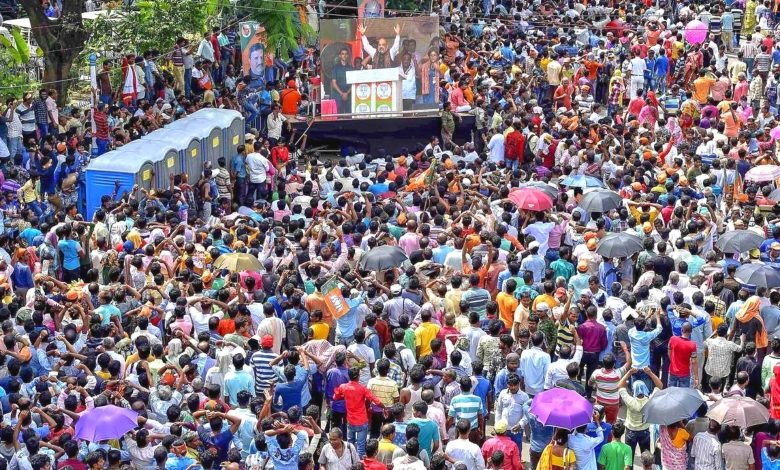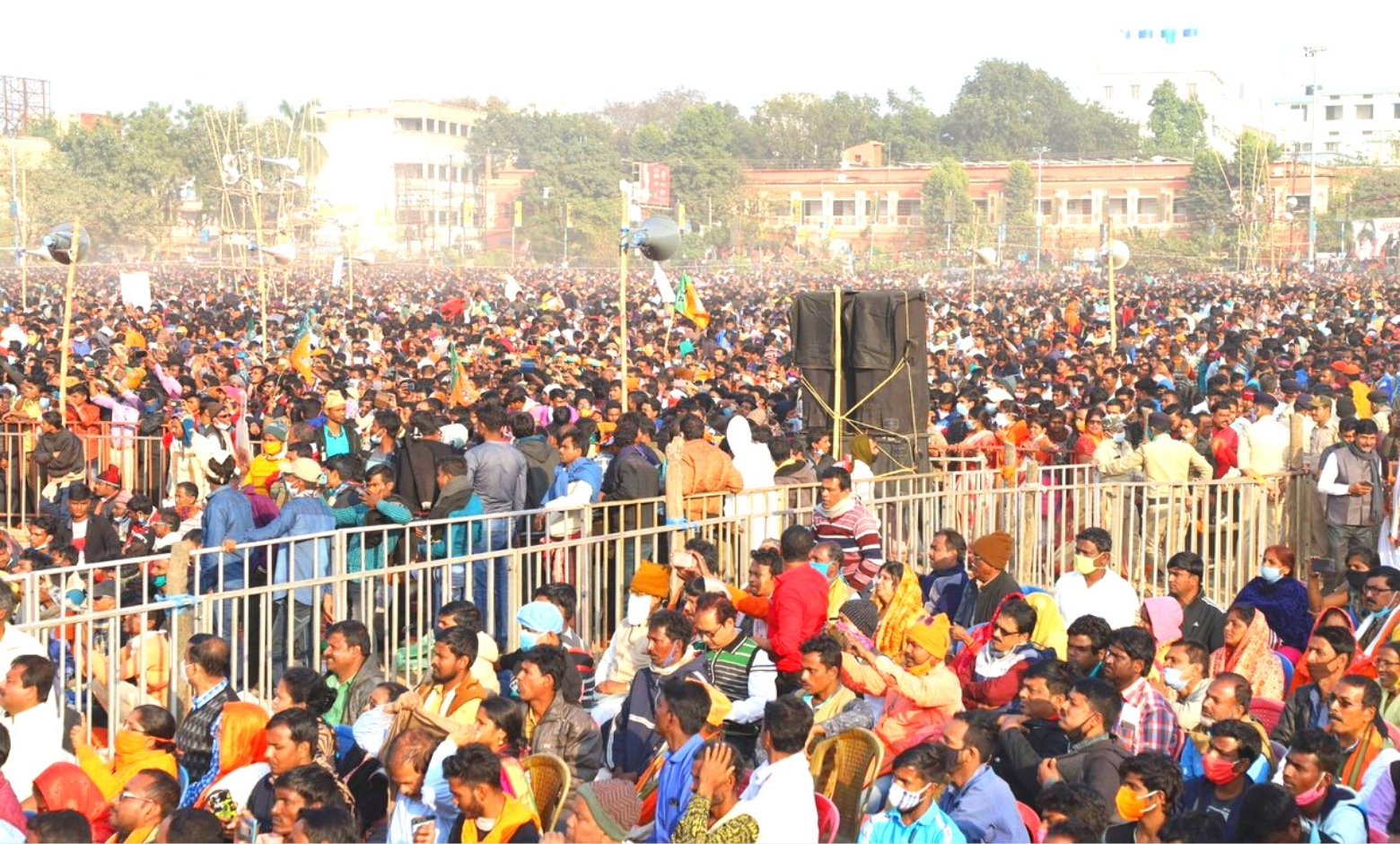Election Rallies That Send the Second Wave of COVID-19 for a Toss

India has reported a record rise in COVID-19 infections, becoming the second country after the United States to surpass more than 100,000 new cases in a day. And there are fears of further spread of the virus as politicians stage massive election rallies. The country’s daily infections have leapt almost 12-fold since hitting a multi-month low in early February, when authorities eased most restrictions and people largely stopped wearing masks and following social distancing.
Though cases have risen exponentially in nearly a dozen states, politicians and ministers are still addressing election rallies attended by tens of thousands of mask-less people jostling for space. The health minister in the north-eastern state of Assam, currently voting to elect a new government, was ridiculed on social media on the weekend after saying there was no need for masks in his state and that wearing one hurts businesses like beauty parlours.
The variant, described by officials as a “double mutant”, had been found in more than 200 samples in the hardest-hit western state of Maharashtra, which is home to India’s financial capital of Mumbai. Epidemiologists said the term “double mutant” refers to an entirely new variant that has the characteristics of two already identified variants. “The new variant, or variants of concern, probably explains a lot of it, rather than simplistic explanation of behaviour,” said Rajib Dasgupta, head of the Centre of Social Medicine and Community Health in New Delhi’s Jawaharlal Nehru University.
India’s two approved vaccines — one developed by AstraZeneca and the other a homegrown shot from Bharat Biotech (Covaxin) — are effective against variants of the virus first identified in Britain and Brazil, health officials said. With 103,558 new infections, India has now reported 12.6 million cases, the highest after the United States and Brazil, data from the health ministry showed.

Union Health Minister Harsh Vardhan on Wednesday agreed that there was a problem with political rallies in view of the worsening coronavirus situation in India. He, however, added that it was up to the Election Commission to take a call on it. In an interview to NDTV, Vardhan said that the surge in coronavirus cases was the result of a combination of multiple factors such as political and social activities. He said that it was “very necessary” to put restrictions on these activities.
However, when asked specifically about restrictions on political functions, the health minister said that he cannot comment or give a direction regarding this. “We all know that it is necessary to conduct elections on time,” he told NDTV. “This is a topic for the Election Commission to take a call on. It is not appropriate for me to comment on it.” While elections in Kerala, Tamil Nadu, Assam and Puducherry concluded on Tuesday, voting will still be held in West Bengal in five remaining phases.

The health minister appealed to people to follow Covid-appropriate behaviour to avoid getting infected. “My minimal appeal to people who are participating in elections, rallies, protests and demonstrations is that you do your normal activity as per the situation and time but can you not cover your noses and mouths properly?” he said. “Who stops you from doing that?” He said that the coronavirus had a “beauty” that it does not require any advanced treatment. “Those who followed Covid-appropriate behaviour honestly did not fall sick in this year.”
Bengal Doctors’ Forum Seeks Curbs on Political Rallies, Warns of Covid-19 Surge
Rising Covid-19 cases in West Bengal and rampant violation of statutory restrictions at political rallies and roadshows during the ongoing assembly election has prompted a section of doctors in the state to urge the Election Commission of India (EC) to impose restrictions on non-compliant parties. The West Bengal Doctors Forum (WBDF), a popular organization that has been working among patients and health workers since the first Covid-19 outbreak a year ago, wrote to the EC on Wednesday and expressed deep concern. “…the second wave of Covid-19 is sweeping various parts of the country and cases in West Bengal have gone up tenfold in the last one month. The medical fraternity is extremely perturbed,” WBDF wrote to the EC in Delhi. The letter was marked to the state government as well.
According to the state health department’s bulletin, 2390 new Covid-19 cases were reported on Wednesday and the number of active cases stood at 14,290. The eight-phase polls in Bengal will end on April 29. On an average, at least two dozen big rallies and roadshows are held on a day by top leaders and campaigners of the contesting parties. The number of smaller meetings and processions is countless.
Maharashtra – The Hardest Hit Indian State in the Second Wave So Far
Maharashtra, India’s hardest-hit state, reported a record 57,074 new cases overnight. The state will start shutting shopping malls, cinemas, bars, restaurants and places of worship from Monday evening. Authorities will also impose a complete lockdown at weekends, as experts worry about a shortage of critical-care beds in hospitals, especially in its smaller cities. Subhash Salunke, a former WHO official who advises Maharashtra on its COVID-19 strategy, said cases in the state would continue to rise for another couple of weeks. He said a way out was vaccinating all adults in its hardest-hit cities such as Mumbai, Pune and Nashik.
